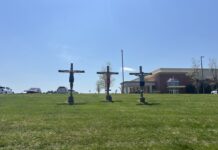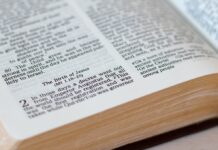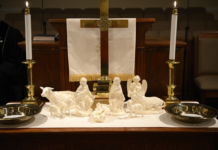
Of the myriad religious systems throughout the world only Christianity teaches incarnation. We don’t talk much about incarnation and when we do it is in the soft cuddly context of a baby born in a manger with angels and shepherds and wise men. We sing “Silent Night, Holy Night”, “Away in a Manger”, or “O Little Town of Bethlehem.” We visualize a tranquil scene of shepherds out under the stars, sitting around a campfire, watching a flock of sleeping sheep. We may give grudging acceptance to the idea of a virgin birth – a totally unprecedented idea. And we may even feel compassion for the teenage mother who had to deliver her firstborn in a stable, no better off than the cows and donkeys. That may be Christmas, but that is not Incarnation!
The four gospels treat the birth of Jesus quite differently. Mark, which presents Jesus as Servant, tells us nothing of his birth or childhood because we really don’t care about the pedigree of a servant. Matthew presents Jesus as King of Kings. So Matthew gives a genealogy back to Abraham and follows Joseph’s genealogy through the kings of Judah, thus connecting Jesus with the history of Israel. Then Luke presents Jesus as the Son of Man. So Luke extends the genealogy back to Adam because Jesus’ story is the story for all mankind, not just the Jews. Then comes John.
What are John’s first words? “In the beginning…”. It is no coincidence that John uses the same words as the writer of Genesis. The writer of Genesis says, “In the beginning God created…” to tell us that God existed before time and creation. John says, “In the beginning was the Word…” which tells us that The Word also existed before time or creation in the same way as God the Father. John goes on to say, “the word was with God”. The key word is “with”. This says that The Word was distinct from God the Father. But then John says, “the Word was God.” This says that The Word was in absolute union with God the Father: that God the Father and God The Word were one and the same in the very essence of their being.
Next John says, “All things came into being through him and without him not one thing came into being. What came into being through him was life, and that life was the light of all people.” So, this Word – this Logos – is the very creative power of God and what was created through this Word was Life with a capital “L”: life of planets and stars and galaxies, life of plants and animals and life of humans: all of existence, seen and unseen. Can we even begin to understand the power and majesty of The Word? The total awesomeness of this pre-existent, all powerful Divine Being? Then John says, “The Word became flesh and lived among us.”
Incarnation!







